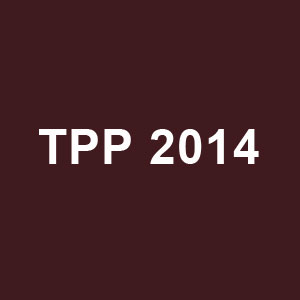… with Loo, Stephen : The Grasshopper Cabaret: Performing philosophy at the limits of the human
What might it be perform philosophy at the limits of the human? One site of this performance is where human and insect worlds meet. At this limit, we may be affected, enchanted, and overwhelmed by small instinctive animal others as material and imaginative presences. Here we cannot solely talk about our own human sensibilities and meanings, and conventional tools of representation no longer fully apply. Animal worlds also that have their edges, and such speculative performances are not only for the human but in a sense for the animal as well.
Drawing on Sigmund Freud’s work on vicissitudes of instinct and Jakob von Uexküll’s work on umwelt – in particular a biological experiment involving grasshoppers, a microphone and a glass bell – we will consider sentience in the context of a more than human world, and ask whether feelings and perceptions that are too distant or proximate to register a legible social meaning, might nevertheless be considered participants in philosophical thinking and ethical life.
We will argue that the faint and overwhelming sensations that arise from encounters between ethology and psychoanalysis are epistemologically confounding, and in the process, philosophy must grapple with incommensurable scientific, rational, psychic, affectual, ethical and political terrains. We would like to connect this kind of philosophical practice, to what Loraine Code calls, ‘ecological thinking’ a willingness to attend to co-affecting relations between different epistemic and imaginative registers.
Our philosophical paper will set out to perform these shifts between epistemologies in order to provide a different kind of spacing that may be able to give a sense – or more accurately a productive non-sense, or a non-relation that is highly sensed – of the immense differences and strange proximities between humans, and other-than-human forms of life. To do so, we will mobilize a form of philosophical performance, which is already in Uexküll’s biology and Freud’s psychoanalysis, which they both associate with childhood instincts, imaginings, stories and expressions.
Dr Stephen Loo is an architect, artist and philosopher, and the Professor of Architecture at the University of Tasmania, Australia. He has published widely on language, affect and the biophilosophy of the contemporary subject, posthumanist ethics and experimental digital thinking.
Dr Undine Sellbach is a philosopher, writer and performer, and is a research associate in the School of Philosophy at the University of Tasmania, Australia. Her research explores the imagination and ethics in the context of notions of life, gender, instinct and the unconscious. undinefrancesca.blogspot.com
Stephen and Undine write and perform together, and are currently working on a monograph on psychoanalysis, ethology, ethics and the entomological imagination.
undinefrancescasellbach.blogspot.com

